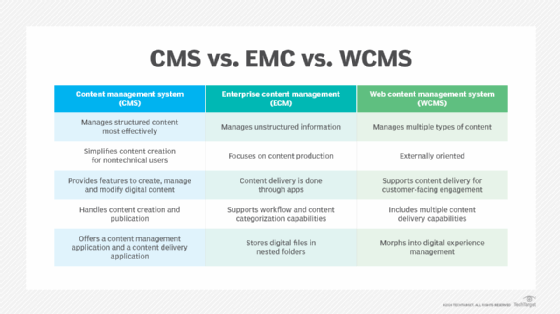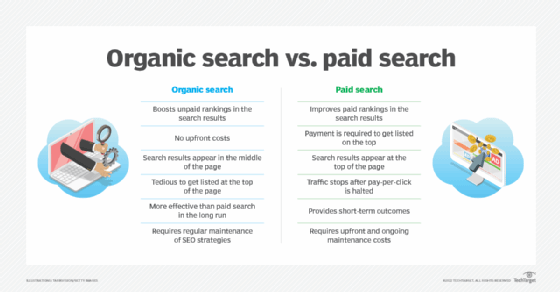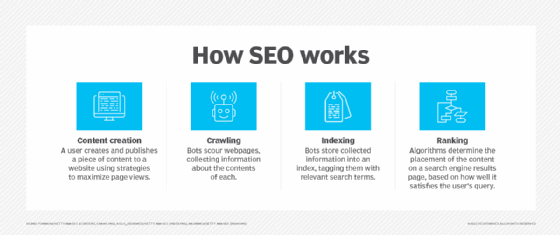webmaster
What is a webmaster?
A webmaster is someone who creates and manages the content and organization of a website, manages the computer server and technical programming aspects of a website, or does both.
Webmasters are often perceived as the website's administrators who wear many hats to ensure the website runs seamlessly.
What does a webmaster do?
What a webmaster does varies significantly depending on the company's size, industry niche, etc. However, most webmasters are responsible for two or more of the following:
- Content management.
- Design and functionality.
- Performance monitoring.
- Technical upkeep.
In a smaller company, a webmaster typically takes care of all the technology related to the website. In a larger company, a webmaster tends to be someone with knowledge and experience with Hypertext Markup Language (HTML) and Cascading Style Sheets (CSS) for styling, or a more technical person with some programming skills. The webmaster runs the server -- for example, by managing the creation and authorization associated with file systems -- and writes programs or Perl scripts required by the website.
Although some webmasters still engage in server management or scripting, the focus has shifted in recent years. This is because of the rise of user-friendly content management systems (CMSes) that have minimized the need for in-depth coding knowledge for basic website maintenance.
In a very large corporation, there might be a team of webmasters at the top of the corporation who establish the overall corporate site design and policies; arrange the necessary technical resources, working with the people who provide the corporation its network infrastructure; and supervise the design of the corporation's website, which is often done by an outside firm. Specialization can be present within the webmaster role, where different professionals concentrate on server administration, security and content management.
At the division and product levels, additional webmasters might organize and develop the site content and programming for their specific division or product. In addition, there is likely to be an interrelated effort to create site design, organization and content for the corporation's intranet.
At a small corporation, the webmaster might oversee the creation of the site and put it on a separate company's server or set up one within the company. The site might be initially designed and created by an external design firm that turns the finished site over to the company's in-house webmaster to maintain and perhaps add content within the established design.
A firm that specializes in creating websites might refer to the overall producer or art director as the webmaster for a site.

What are webmaster tools?
Google and Bing offer webmaster tools. Google Search Console, previously known as Google Webmaster Tools, is a free suite of services the search giant provides for website owners. The primary objective is to help website owners understand how their website is performing and identify areas for improvement. Key functionalities include monitoring search performance, identifying technical issues and optimizing visibility.
Microsoft offers Bing Webmaster Tools, which is also a free service like Google Search Console. Bing Webmaster Tools helps website owners and webmasters manage their presence in Bing search results. It also offers many features like those of Google Search Console, including website health monitoring, managing backlinks, submitting URLs for indexing and analyzing website performance.
Webmaster tools can be a valuable resource for webmasters and website owners who strive to improve their website's visibility in search results and generate organic traffic.

How does a web architect differ from a webmaster?
Webmasters and web architects perform different yet complementary roles.
Web architects concentrate on the blueprint, structure and foundation of web building. This includes planning the website's overall structure, user interface and user experience (UX), and defining how users will interact with and navigate the website. Web architects are experienced with technologies such as HTML, CSS and JavaScript, and they collaborate with developers, designers and content creators.
Webmasters ensure the website runs smoothly and that all site functions are up to date. They handle server maintenance, performance monitoring, security measures and content updates. They have a solid technical background and experience with server-side scripting and programming languages. Webmasters also use website analytics tools to monitor performance and identify areas for improvement. This usually involves UX and search engine optimization (SEO).

How do you become a webmaster?
The path to becoming a webmaster varies greatly. Formal education isn't mandatory, and self-learning is sufficient to perform well in this role. However, all webmasters must have some technical skills such as HTML, CSS and JavaScript for front-end development. It also helps to learn and understand server-side languages such as Python or Hypertext Preprocessor.
Those striving to become webmasters should also familiarize themselves with popular CMS platforms such as Drupal and WordPress. This will help keep website creation and management more straightforward. Future webmasters must also be well versed in SEO best practices to improve website visibility.
Read about some free keyword research tools and how data analytics can improve content management strategies. Explore ways to boost a webpage's ranking.
